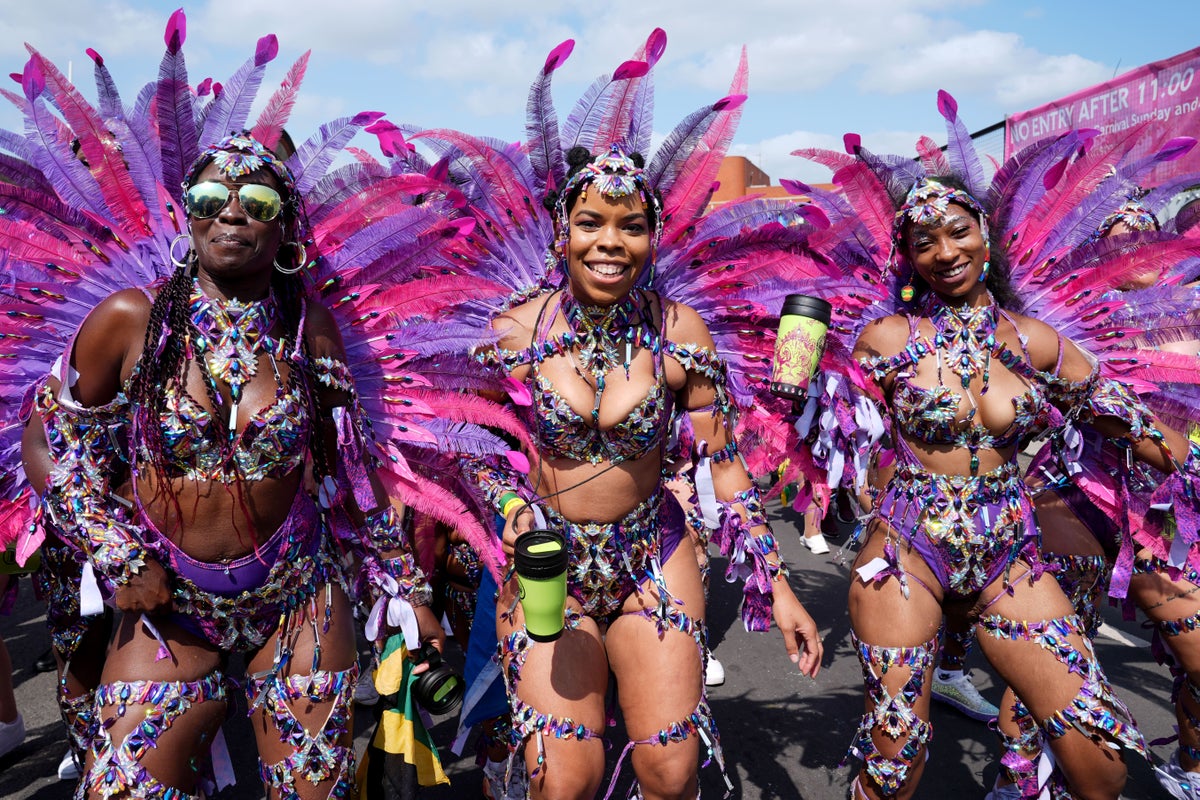The largest street festival in Europe, Notting Hill Carnival, is in crisis. A celebration of Caribbean culture, the carnival sees around 2 million people descend on the streets of Notting Hill every year during the August bank holiday weekend. But this year, due to a funding crisis and worries over its size, there are fears that it won’t take place at all.
London’s mayor, Sadiq Khan, has shared concerns raised by the Metropolitan Police about crushing at the event, saying that video footage of some of the crowds has “frightened” him. He also drew comparisons to the potential for another Hillsborough disaster – no little matter for the lifelong Liverpool supporter.
Notting Hill Carnival means a lot to me, as a second-generation Caribbean growing up in the UK. Originally held indoors at St Pancras Town Hall, it was established by Trinidadian activist Claudia Jones in 1959 as a response to the previous year’s race riots. She created it to celebrate Caribbean culture and foster unity between Black and white people. A few years ago, when I appeared on an episode of Radio 4’s “Making History” and we were asked to nominate a person who should be featured on their plinth in London, I chose this woman. The outdoor festival, as we now know it, celebrates its 60th anniversary next year.
I remember the loud music of Carnival, getting sticks of sugar cane to gnaw on, and the beautiful smell of Caribbean food permeating the air. I was transfixed by the colourful costumes, but most of all by the sight of Black and white people celebrating and dancing together. As a family, we would travel down to London to see my uncle Gus Philip, who was one half of Charlie Phillips’ iconic 1967 photograph, Notting Hill Couple – the presentation of a Black man and a white woman together was symbolic because it was just this kind of image that fuelled the anger behind the riots.
One of the ideas that has been floated about Carnival’s future is moving it to Hyde Park and becoming a ticketed event. I find this suggestion offensive – Carnival is a street party based in Caribbean tradition. As part of a safety report, Met Police reps have said no frontline officer looks forward to working the event due to the possibility of crushing, and the small criminal element that takes advantage of the large crowds to “cause carnage”.
Like so many public events, Carnival has been marred by violence, but this is particularly exaggerated in coverage. It’s the only festival where any statement from the police begins with the number of crimes committed. This feels like a continuation of the criminalisation of the Caribbean community that created tension with the police in the first place. No one speaks about Glastonbury, Leeds or Reading in that way. It’s an open street festival. Anything that happens near the carnival or in the general area is attributed to it, and that’s simply not accurate.
Yet, however nostalgic one feels about it, and however much I hate the more racist commentary, the safety concerns raised do bother me. I can’t help but think of the two little boys who are now growing up without their mother, Rebecca Ikumelo, after she was killed in a crush at Brixton Academy in 2022. Security guard Gaby Hutchinson also lost her life that night. Their families have put these deaths down to greed and are calling for the prosecution of those responsible. Hutchinson’s family are taking legal action. This is the crux for me: if a disaster were to happen at Carnival, and any other people were left grieving for their family members, they wouldn’t accept being told that safety concerns had been overlooked due to their race.
But I don’t want the environment to be changed, not least because the reasons for Carnival’s very existence are still so present. Last year, we saw race riots across the UK, which were very similar to the ones that gave rise to Notting Hill Carnival in the first place. Carnival is about rebellion, celebration and reclamation of space. It belongs in the streets.
